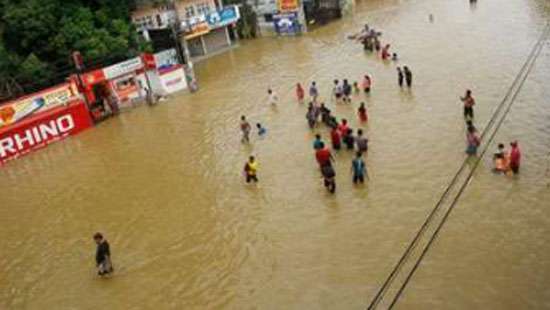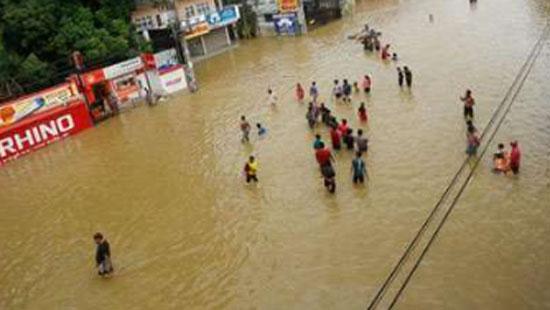Reply To:
Name - Reply Comment

 Colombo, June 04, (Daily Mirror) - In the aftermath of severe flooding across Sri Lanka, health authorities urge people to avoid walking or swimming in floodwaters, as they may contain hazardous bacteria and debris causing complications.
Colombo, June 04, (Daily Mirror) - In the aftermath of severe flooding across Sri Lanka, health authorities urge people to avoid walking or swimming in floodwaters, as they may contain hazardous bacteria and debris causing complications.
The Health Ministry also advised people not to consume food that has been damaged by flooding; it should be discarded.
Further, it requests adults to keep children and pets away from contaminated water to prevent illness while to seek immediate medical attention if any symptoms of illness are experienced.
Meanwhile, health authorities are urging the public to remain vigilant against the spread of leptospirosis, commonly known as 'rat fever.'
As floodwaters recede, there could be a noticeable uptick in leptospirosis cases, particularly in regions where the disease was previously uncommon, an official from the Health Ministry said.
"We have instructed provincial health authorities to be extra vigilant during the post-flood period," the official stated.
Leptospirosis symptoms include prolonged high fever, severe spinal pain, intense headaches, and muscle pains. The ministry advises that anyone experiencing these symptoms seek immediate medical attention. The disease's clinical presentation varies widely; while many exposed to the bacterium remain asymptomatic, those who do show symptoms typically experience them within 5-14 days of exposure, with an incubation range of 2-30 days.
In approximately 5-10% of cases, leptospirosis can develop into severe forms that may lead to fatalities. High-risk groups include individuals engaged in occupations such as agriculture, farming, gem-mining, sewage, and canal cleaning.
Diagnosing leptospirosis involves identifying symptoms such as acute febrile illness with chills, headaches, muscle pain or tenderness, jaundice, conjunctival suffusion, cough, shortness of breath, and gastrointestinal issues. Severe complications can include renal, heart, or respiratory failure, widespread hemorrhage, and central nervous system involvement, all of which can be fatal.